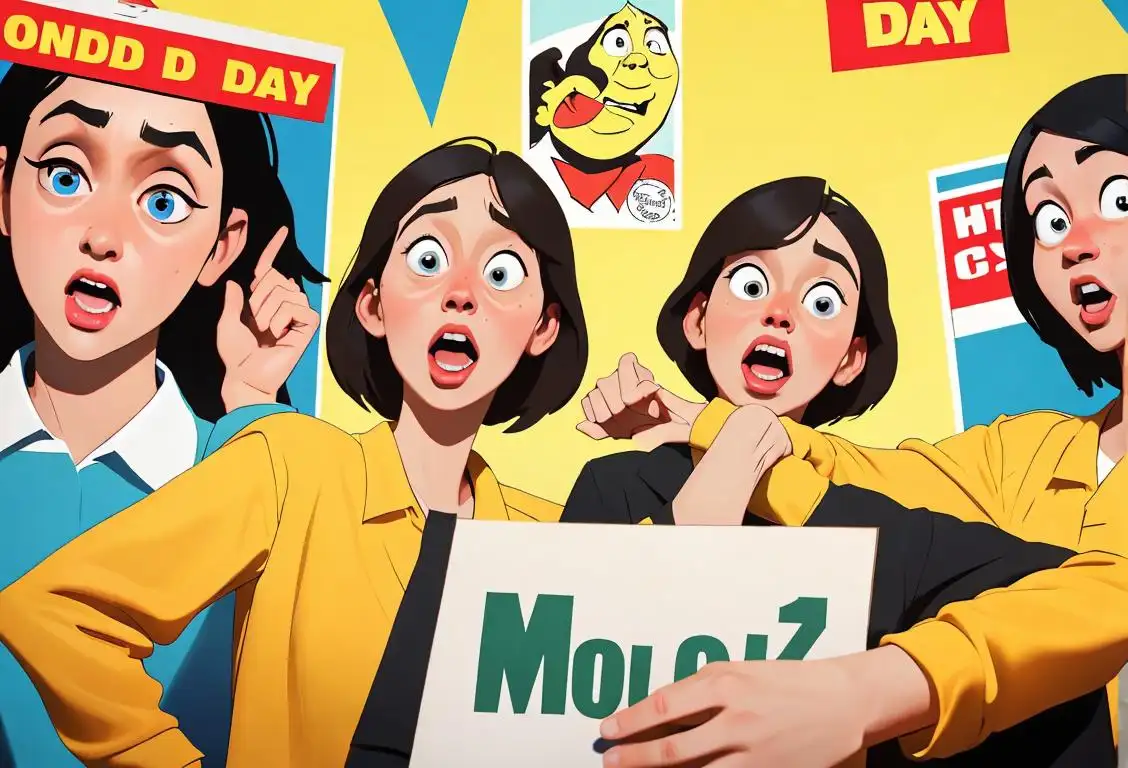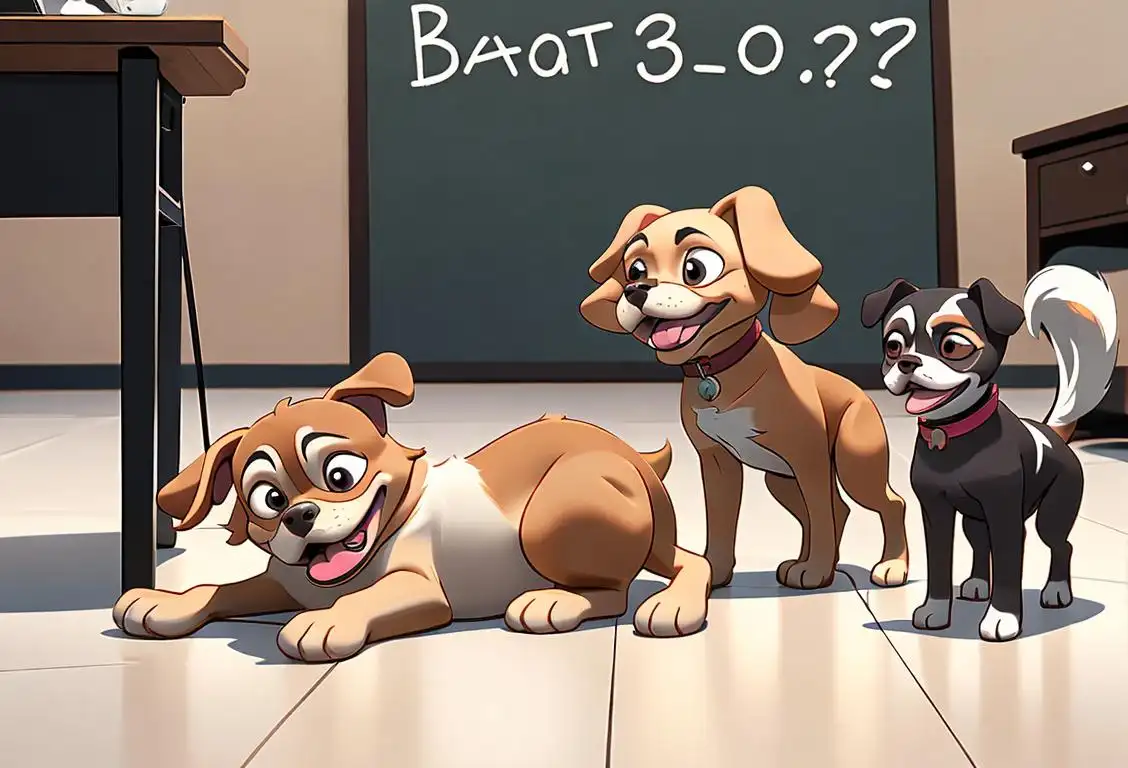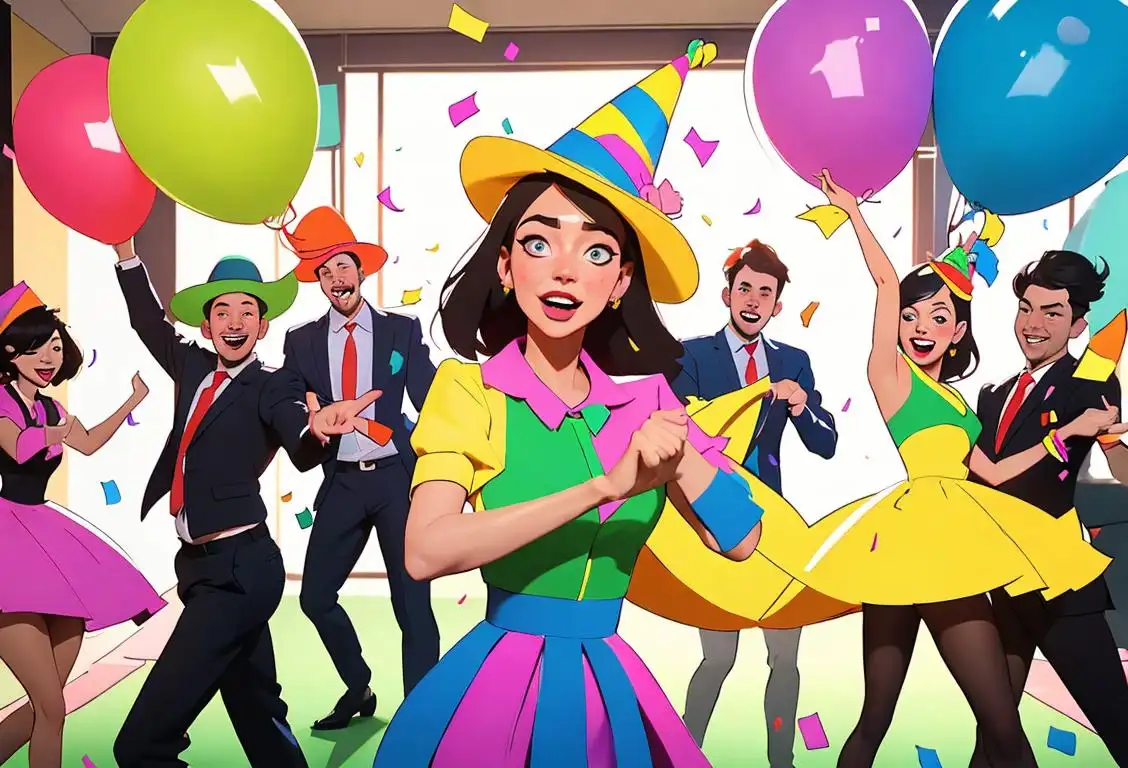National Get Fired Day

Hey there, folks! Are you ready for some workplace shenanigans? Well, get ready because it's National Get Fired Day! This oh-so-interesting day allows us to take a hilarious look at the bloopers and blunders that can happen at work. So, let's dive into the delightful world of getting, uh, voluntarily unemployed!
When is Get Fired Day?
It's national get fired day on the 6th June.
Work Quirks: A Day to Remember
On the first Wednesday of June, employees around the country get to celebrate National Get Fired Day, a lighthearted and entertaining observance. While we don't suggest engaging in activities that could harm your employment status, it's all about embracing the mishaps and laughable moments that can occur in the workplace.
Now, before we continue, let's make one thing clear: losing your job is no laughing matter when it happens in reality. It can be stressful, disappointing, and bring financial strain. Always strive to maintain a healthy work environment and give your best effort. But for the sake of humor, let's explore the fun side of things!
Did you know that National Get Fired Day isn't just about office mishaps? It also encourages people to share funny work stories and anecdotes, creating a bonding experience among coworkers. It's a time to laugh off those embarrassing moments and appreciate the quirks of the working world.
Online Buzz and Hilarity
According to our data, National Get Fired Day received quite a buzz, with 479 mentions online. The day that garnered the most attention was June 6, 2018, when people flooded social media with stories and memes.
So, how did people celebrate this unusual occasion? Some shared funny anecdotes about coffee spills, accidental email mishaps, or embarrassing presentations. Of course, all stories were kept devoid of any specific identifying information to maintain privacy. Remember, folks, keep it light and respectful!
This charming day has gained popularity not only among workers but also among comedy enthusiasts. Comedians enjoy poking fun at the oddities of office life, giving people a reason to laugh and relate. After all, finding humor in everyday situations is a great way to lighten the mood and bring a smile to our faces.
Tags: Fun, Work, Humor
History behind the term 'Get Fired'
1850
The birth of the term
The term 'get fired' originates in the mid-19th century when 'fire' was first used as a metaphorical representation of someone losing their job. The word 'fire' was commonly used to refer to the act of physically removing someone from a position or place. The concept of being 'fired' gradually transitioned into the employment context.
1800
The Introduction of Industrial Revolution
During the 1800s, the Industrial Revolution brought significant changes to the workforce. With the rise of factories and mass production, the concept of employment began to shift. As manual labor became more prevalent, workers were hired based on their ability to perform tasks efficiently and effectively. This shift in employment practices laid the foundation for the term 'get fired.'
1890
Origin of the Phrase 'Fire a Shot'
The term 'get fired' is likely derived from the phrase 'fire a shot,' which has historical ties to the military. In the late 19th century, the phrase 'fire a shot' was commonly used to refer to moments of dismissal or expulsion, particularly in military contexts. This association with expulsion gradually extended to the civilian workplace, leading to the adoption of the term 'get fired' to describe the act of being terminated from a job.
1885
The rise of industrialization
During the Industrial Revolution, when large factories and industries were booming, the term 'get fired' became more widespread. As employees were often subject to harsh working conditions, many found themselves losing their jobs due to various reasons, such as incompetence, insubordination, or economic downturns. The term gained popularity in this era of rapid industrialization.
1900
Popularization of the Term 'Get Fired'
By the early 20th century, the term 'get fired' had become widely recognized and used in everyday language. Its usage spread beyond military and industrial contexts and became synonymous with being dismissed or losing one's job. The term entered popular culture, appearing in literature, newspapers, and other media, further solidifying its place in the English language.
1910
The rise of labor unions
During the early 20th century, labor unions became more influential in fighting for workers' rights. The term 'get fired' became associated with the struggles of workers against unfair treatment and unjust dismissals. It represented the vulnerability and uncertainty faced by employees at that time.
1970
Idiomatically Establishing the Term
In the 1970s, the idiomatic usage of 'get fired' became well-established. It became an integral part of colloquial language and various expressions. The term was often utilized in idiomatic phrases like 'getting fired up' or 'firing someone's imagination', emphasizing the intensity or enthusiasm associated with certain actions. This idiomatic usage further contributed to the longevity and cultural impact of the term.
1957
Popularity in American culture
In the post-war era, 'get fired' became a common phrase in American culture. It was often used in movies, television shows, and books to depict dramatic scenes of characters losing their jobs. This contributed to the widespread recognition and adoption of the term in everyday language.
Present
Continued Usage and Evolution
In the present day, 'get fired' remains a prominent and widely understood term in the English language, transcending borders and locale. Its origin echoes the changes and transformations in the nature of employment throughout history. While the term's exact phrasing may evolve or adapt over time, the concept of being terminated from a job is likely to persist, ensuring the continued relevance of the term 'get fired' in both professional and everyday contexts.
1970
Integration into corporate jargon
As the corporate world blossomed, the term 'get fired' became an integral part of workplace lexicon, particularly in the United States. It was widely used by employees and employers alike to signify termination or dismissal from a job. The phrase became a symbol of job insecurity and the potential consequences of violating company policies.
Present
Continued usage and evolution
Today, 'get fired' remains a commonly used term across the globe to describe losing one's job. It has transcended its literal roots and is now firmly established as an idiom in the English language. The phrase can evoke a wide range of emotions, representing a mixture of fear, disappointment, and, in some cases, relief.
Did you know?
Did you know that National Get Fired Day isn't just about office mishaps? It also encourages people to share funny work stories and anecdotes, creating a bonding experience among coworkers. It's a time to laugh off those embarrassing moments and appreciate the quirks of the working world.Tagged
fun humor workFirst identified
20th April 2016Most mentioned on
6th June 2018Total mentions
479Other days
Get Fired Day
Kick The Boss In The Ass Day
Name Yourself Day
Underage Drinker Day
Take Your Dog To Work Day
Surprise Drug Test Day
Unemployed Day
Ugly Christmas Sweater Day
Freelancers Day
Have Fun At Work Day







